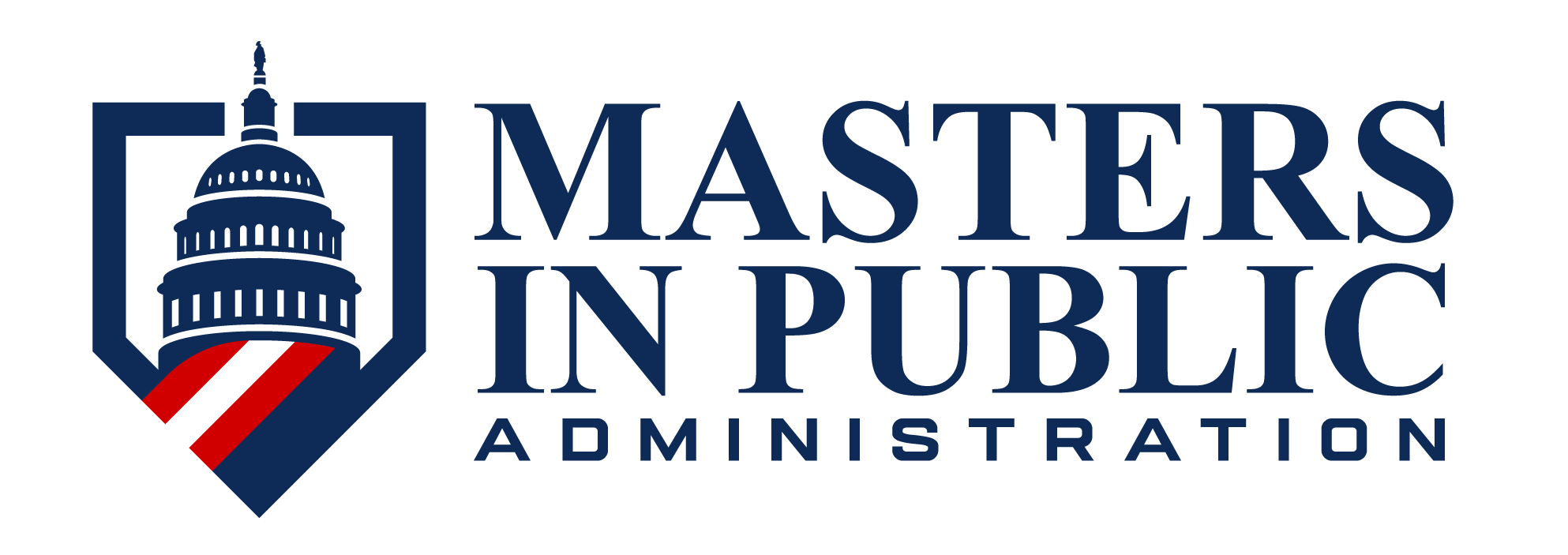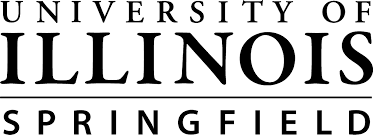Introduction
Obtaining a dual degree in public administration and health administration can offer numerous opportunities for aspiring career professionals. This unique combination of qualifications equips individuals with a diverse skill set that is highly sought after in today’s healthcare landscape. With a dual degree, graduates are prepared to tackle the administrative challenges of healthcare organizations and navigate the policy frameworks that shape the industry.
In this blog post, we’ll explore the additional opportunities that a dual degree in public administration and health administration can provide, and how it can set you on a path to a successful career in healthcare management and policy.
ADVERTISEMENT
American University
Online Master’s in Public Administration and Policy
American University’s nationally recognized and NASPAA-accredited master’s in public administration provides students with a master’s-level understanding of modern governance from an award-winning faculty working and teaching in the heart of government, Washington, D.C.
Ohio University
Online & Hybrid Master of Public Administration Degrees
Ohio University’s MPA programs equip graduates for leadership roles in government, nonprofit organizations, and the public sector. Concentrations include:
Walden University
Online Public Policy and Administration Programs
Walden University’s Public Administration programs are taught by a distinguished faculty of scholar-practitioners, many of whom have senior-executive experience in government and public service. Programs include:
Arizona State University
Online Master of Public Administration (MPA)
ASU’s Online Master of Public Administration provides students with a curriculum that covers leadership strategies, ethical decision-making, and effective management across various organizations.
Liberty University
Online Master of Public Administration (MPA)
Liberty University’s Master’s Degree in Public Administration Online is designed to equip students with a thorough background in the theories and practices essential for success in government and nonprofit roles. MPA areas of focus include:
Southern New Hampshire University
Online Public Administration & Political Science Degrees
Stand up and be counted with a degree in public administration/political science from Southern New Hampshire University—and learn how to facilitate change from within the system. Program offerings include:
MPA vs. MHA: Degree Comparison
Choosing between a Master’s in Public Administration (MPA) and a Master’s in Health Administration (MHA) depends on your career goals and interests. Both programs offer unique opportunities and prepare you for different roles within the public and healthcare sectors.
Choosing between an MPA and an MHA depends on your career interests and goals. If you are interested in public policy, government, and nonprofit management, an MPA may be the right choice. If you are passionate about healthcare and want to pursue a career in healthcare management and administration, an MHA may be more suitable. Consider your strengths, interests, and career aspirations when deciding which program is right for you.
Degree Requirements
Public Administration (MPA) Degree:
MPA programs focus on public policy, management, and leadership in government and nonprofit organizations. Students learn about budgeting, policy, finance, and organizational behavior.
Health Administration (MHA) Degree:
MHA programs focus on healthcare management and administration, preparing students for leadership roles in healthcare organizations. Curriculum includes healthcare finance, quality improvement, healthcare law, and health policy.
Topics Covered
Public Administration (MPA) Degree:
- Public Policy Analysis: Analyzing and evaluating public policies to understand their implications and effectiveness.
- Public Finance and Budgeting: Studying government budgeting processes, revenue sources, and financial management in the public sector.
- Organizational Behavior: Understanding how individuals, groups, and structures within organizations interact and affect organizational performance.
- Strategic Planning: Developing strategies to achieve organizational goals and objectives in the public sector.
- Public Sector Economics: Studying economic principles and theories as they apply to public sector decision-making.
As an example, The University of Southern California’s (USC) MPA program offers courses such as “Policy Analysis and Program Evaluation,” “Public Financial Management,” and “Organizational Behavior in Public Administration.”
Health Administration (MHA) Degree:
- Healthcare Delivery Systems: Studying the organization and delivery of healthcare services in various settings.
- Healthcare Finance: Understanding financial management principles and practices specific to the healthcare industry.
- Quality Improvement in Healthcare: Learning strategies to improve the quality and efficiency of healthcare services.
- Health Policy: Analyzing healthcare policies and regulations at the local, state, and federal levels.
- Health Information Systems: Understanding the use of information technology in healthcare organizations.
As an example, the University of Washington’s (UW) MHA program includes courses such as “Health Systems and Policy Analysis,” “Financial Management of Healthcare Organizations,” and “Quality and Performance Improvement in Healthcare.”
Time to Completion
Public Administration (MPA) Degree: Typically takes 1.5 to 2 years for full-time students, but can vary based on program and course load. Part-time students generally take between 3 and 4 years to complete the degree.
Health Administration (MHA) Degree: Typically takes 2 to 3 years for full-time students, but can vary based on program and course load. Part-time students generally take between 4 and 5 years to complete the degree.
ADVERTISEMENT
American University
Online Master’s in Public Administration and Policy
American University’s nationally recognized and NASPAA-accredited master’s in public administration provides students with a master’s-level understanding of modern governance from an award-winning faculty working and teaching in the heart of government, Washington, D.C.
Ohio University
Online & Hybrid Master of Public Administration Degrees
Ohio University’s MPA programs equip graduates for leadership roles in government, nonprofit organizations, and the public sector. Concentrations include:
Walden University
Online Public Policy and Administration Programs
Walden University’s Public Administration programs are taught by a distinguished faculty of scholar-practitioners, many of whom have senior-executive experience in government and public service. Programs include:
Arizona State University
Online Master of Public Administration (MPA)
ASU’s Online Master of Public Administration provides students with a curriculum that covers leadership strategies, ethical decision-making, and effective management across various organizations.
Liberty University
Online Master of Public Administration (MPA)
Liberty University’s Master’s Degree in Public Administration Online is designed to equip students with a thorough background in the theories and practices essential for success in government and nonprofit roles. MPA areas of focus include:
Southern New Hampshire University
Online Public Administration & Political Science Degrees
Stand up and be counted with a degree in public administration/political science from Southern New Hampshire University—and learn how to facilitate change from within the system. Program offerings include:
MPA / MHA Dual-Degree Programs
Cornell University
- Ithaca, NY
- Campus
Program:
Sloan Program and MPA Program
Modality: On-Campus
Credits: 72
Program Overview:
The dual MHA/MPA degree option is offered to students in the Sloan Program in Health Administration and the Master of Public Administration Program, allowing them to complete both degrees in three years with no duplicative coursework. This program aims to merge training in public administration with management tools and their application to health administration, health sector organization, health policy, and public health.
University of Washington
- Seattle, WA
- Campus
Program:
Evans School of Public Policy and Governance
Modality: On-Campus
Credits: 72
Program Overview:
The University of Washington’s Evans School of Public Policy & Governance offers concurrent degree programs for both current UW graduate students and Evans School MPA students. Concurrent degrees can be pursued with several other UW schools and colleges, including the School of Public Health.
University of Michigan
- Ann Arbor, MI
- Campus
Program:
School of Public Health
Modality: On-Campus
Credits: 84
Program Overview:
The program allows students to complete all requirements for both degrees in just three years, instead of the usual four. During the first two years, students complete the first-year sequence of courses in one program each year. In the third year, they attend courses in both programs. Students are also expected to complete internships during the summer between each year of study, with assistance from faculty and staff in placement.
New York University
- New York, NY
- Campus
Program:
School of Global Public Health
Modality: On-Campus
Credits: 69
Program Overview:
The three-year program with NYU Wagner Graduate School of Public Service offers a dual MPA/MPH degree, preparing students for leadership roles in public health and public administration. Graduates are equipped for careers in community healthcare settings, government agencies, and non-profit organizations, both in the U.S. and internationally.
University of Wisconsin – Madison
- Madison, WI
- Campus
Program:
La Follette School of Public Affairs
Modality: On-Campus
Credits: 61
Program Overview:
Students develop skills in public health policy and management to address complex health issues. The 61-credit program is completed in a shorter timeline due to overlapping courses from each program. Students must apply and be admitted to both the La Follette School of Public Affairs and the Master of Public Health Program separately, but can apply to both programs at the same time or apply to one program while enrolled in the other. It is recommended that students be admitted to both programs during the first year to maximize time in both programs.
University of Missouri
- Columbia, MO
- Campus
Program:
College of Health Sciences
Modality: On-Campus
Credits: 54
Program Overview:
The MPH/MPA dual degree program allows students interested in public health policy and management to complete both degrees in three years, rather than the four required for two standalone degrees. Students must be admitted to both programs independently. The program integrates advanced public affairs and administration practice with population-based public health knowledge and skills, preparing graduates for roles in policy analysis, city management, government health agencies, and hospital and nonprofit management.
Brown University
- Providence, RI
- Campus
Program:
School of Public Health
Modality: On-Campus
Credits: 51
Program Overview:
The School of Public Health and the Watson Institute for International and Public Affairs offer a rigorous dual Master of Public Health (MPH) and Master of Public Affairs (MPA) program. Starting in the summer, the program emphasizes hands-on learning to prepare students to address health policy issues globally. It includes 17 courses, an internship, and a thesis, with access to resources from both institutions. The program can be completed in two years, with a five-year completion window.
Fairleigh Dickinson University
- Teaneck, NJ
- Online + Campus
Program:
Public Administration and Public Health
Modality: Online/On-Campus
Credits: 60
Program Overview:
This program allows you to earn both degrees in two and a half years and prepares you for the Certified in Public Health (CPH) exam. The curriculum focuses on key skills such as budget management, cultural awareness, epidemiology, governance, and policy evaluation. You’ll also develop competencies in communication, leadership, planning, and systems thinking. Graduates can pursue leadership roles in community health, hospital management, government agencies, and public health organizations.
Colorado University – Denver
- Denver, CO
- Online + Campus
Program:
School of Public Affairs
Modality: Online/On-Campus
Credits: 60
Program Overview:
The program combines core courses from both disciplines and offers a range of electives to align with students’ career and personal goals. The program requires 60 credit hours of graduate coursework and allows for up to 6 transfer credits. Applicants can start the program in the fall, spring, or summer, with application deadlines of August 1, December 1, and May 1, respectively. Students are expected to maintain a minimum GPA of 3.0 to remain in good academic standing.
University of Utah
- Salt Lake City, UT
- Campus
Program:
David Eccles School of Business
Modality: On-Campus
Credits: 68-71
Program Overview:
The dual MHA/MPA degree program prepares students for roles in health policy and advocacy organizations, as well as administrative positions in healthcare settings. The program is designed for both full-time and part-time students typically completed in approximately 3 years. Classes are available in the evening and on weekends for MPA courses, while MHA classes are primarily offered during the day. The program accommodates working professionals, with many students working full-time and starting MHA classes early in their program.
University of Miami
- Coral Gables, FL
- Campus
Program:
Joint Degree Programs
Modality: On-Campus
Credits: 66
Program Overview:
The University of Miami offers a joint MPA/MPH degree, combining public health knowledge with management and public policy skills. Students can pursue the degrees consecutively or concurrently. Applicants must be admitted to each program separately, and acceptance into one program does not guarantee acceptance into the other.
University of Illinois – Springfield
- Springfield, IL
- Campus
Program:
School of Public Management and Policy
Modality: On-Campus
Credits: 70
Program Overview:
The MPA-MPH dual degree, offered by the School of Public Management and Policy and the Department of Public Health, combines public health knowledge with training in management and public policy administration. Graduates with this dual degree shape policy and work across sectors, addressing issues like drinking water quality, environmental contamination, and food safety.
Career Fields and Professional Opportunities
This dual expertise can lead to a range of career paths, from leadership roles in healthcare institutions to positions in government agencies and nonprofit organizations focused on health policy and advocacy. These career fields offer diverse opportunities for MPA-MHA dual degree holders to make a positive impact on public health and healthcare delivery:
- Healthcare Policy Analyst: Analyze healthcare policies and regulations to assess their impact on public health and healthcare delivery systems.
- Health Program Administrator: Manage and coordinate healthcare programs and services in public health departments, hospitals, and other healthcare organizations.
- Health Policy Advocate: Advocate for health policy changes at the local, state, and federal levels to improve access to healthcare and health outcomes.
- Healthcare Consultant: Provide consulting services to healthcare organizations on strategic planning, operations management, and healthcare policy.
- Health Services Manager: Oversee the operations of healthcare facilities, such as hospitals, nursing homes, and outpatient clinics, to ensure they are effective.
- Public Health Educator: Develop and implement public health education programs to promote healthy behaviors and prevent disease in communities.
- Healthcare Compliance Officer: Ensure healthcare organizations comply with relevant laws and regulations related to healthcare delivery and patient care.
- Health Information Manager: Manage and protect patient health information in compliance with healthcare privacy laws and regulations.




















